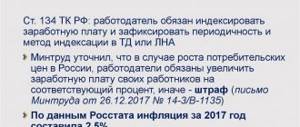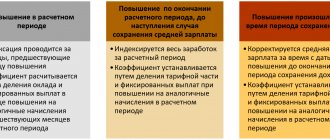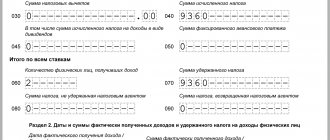People, planning their personal events for the future, pin their hopes on a vacation, when there is enough free time and money is available. Financial issues relate to the receipt of wages and vacation payments. This usually happens 3 days before the start of a long rest. This article explains what vacation pay is and why these payments are less than wages.
General concepts
The legislation regulates the labor activities of citizens and also guarantees compulsory annual leave. Section 19 of the Labor Code of the Russian Federation is devoted to this topic (all links to articles below are taken from it). Article 114 establishes the employee’s right to rest. He does not need to beg for vacation days, since they are due to him by law. According to the same article, while the employee is on vacation, his workplace, position and salary remain assigned to him. And the vacation itself is paid for by the employer.
Article 115 establishes the minimum number of annual vacation days. There must be a minimum of 28. Representatives of certain professions (doctors, teachers, employees of enterprises with increased danger or harmfulness) have the right to longer rest.
This period does not include public holidays. They are added to the total number of days as they carry over into the work week.
Vacation days that have not been used are not canceled, but accumulated. The employee can use them at his own discretion. But if a worker does not take rest for 2 years, then his employer may be fined because of this (based on Article 124).
The boss has the right to compensate the employee for his unspent rest days with money, only in certain cases:
- Dismissal. The last salary will also consist of compensation for the remaining days.
- Vacation longer than 28 days. Money is paid only for days beyond the mandatory 28.
Having settled in a new job, an employee has the right to take rest (in whole or in parts) only after working the first 6 months. By this time, he will have accumulated 14 days of rest (since 1 month worked is equal to 2.33 days of rest). This rule applies for the first working year. Starting next year, vacation can be taken at any time.
Attention! Before the employee retires, the accountant will calculate his average daily earnings and, based on them, calculate vacation pay.
I received vacation pay and then it was deducted from my salary. Is this legal?
Labor Code of the Russian Federation, Article 136. Procedure, place and timing of payment of wages
Guide to HR issues. Questions of application of Art. 136 Labor Code of the Russian Federation
Consultant Plus: note.
Resolution of the State Statistics Committee of Russia dated 01/05/2004 N 1 approved unified forms of primary accounting documentation for recording labor and its payment, including forms of payroll, payroll, payroll, payroll register.
When paying wages, the employer is obliged to notify each employee in writing:
1) on the components of the salary due to him for the relevant period;
2) on the amount of other amounts accrued to the employee, including monetary compensation for the employer’s violation of the established deadline for payment of wages, vacation pay, dismissal payments and (or) other payments due to the employee;
3) about the amount and grounds for deductions made;
4) about the total amount of money to be paid. (Part one as amended by Federal Law dated April 23, 2012 N 35-FZ) (see text in the previous edition)
The form of the pay slip is approved by the employer, taking into account the opinion of the representative body of employees in the manner established by Article 372 of this Code for the adoption of local regulations. (as amended by Federal Law No. 90-FZ of June 30, 2006) (see text in the previous edition)
Wages are paid to the employee, as a rule, at the place where he performs the work or transferred to the credit institution specified in the employee’s application, under the conditions determined by the collective agreement or employment contract. The employee has the right to change the credit institution to which wages should be transferred by notifying the employer in writing about the change in the details for transferring wages no later than five working days before the day of payment of wages. (Part three as amended by Federal Law dated November 4, 2014 N 333-FZ) (see text in the previous edition)
The place and timing of payment of wages in non-monetary form are determined by a collective agreement or employment contract.
Wages are paid directly to the employee, except in cases where another method of payment is provided for by federal law or an employment contract. (as amended by Federal Law No. 90-FZ of June 30, 2006) (see text in the previous edition)
Salaries are paid at least every half month. The specific date for payment of wages is established by internal labor regulations, a collective agreement or an employment contract no later than 15 calendar days from the end of the period for which it was accrued. (Part six as amended by Federal Law dated July 3, 2016 N 272-FZ) (see text in the previous edition)
For certain categories of employees, federal law may establish other terms for payment of wages.
If the payment day coincides with a weekend or non-working holiday, wages are paid on the eve of this day.
Payment for vacation is made no later than three days before it starts.
Article 16 of the Labor Code of the Russian Federation. Grounds for the emergence of labor relations Labor relations arise between an employee and an employer on the basis of an employment contract concluded by them in accordance with this Code. In cases and in the manner established by labor legislation and other regulatory legal acts containing labor law norms, or the charter (regulations) of an organization, labor relations arise on the basis of an employment contract as a result of: appointment to a position or confirmation in a position; court decision on concluding an employment contract; recognition of relations associated with the use of personal labor and arising on the basis of a civil contract as labor relations. Labor relations between an employee and an employer also arise on the basis of the actual admission of the employee to work with the knowledge or on behalf of the employer or his authorized representative in the case where the employment contract was not properly drawn up. The actual admission of the employee to work without the knowledge or instructions of the employer or his an authorized representative is prohibited. Article 80 of the Labor Code of the Russian Federation. Termination of an employment contract at the initiative of the employee (at his own request) On the last day of work, the employer is obliged to issue the employee a work book and other documents related to the work, upon the written application of the employee, and make a final settlement with him. Article 234 of the Labor Code of the Russian Federation. The employer's obligation to compensate the employee for material damage caused as a result of illegal deprivation of his opportunity to work. The employer is obliged to compensate the employee for the earnings he did not receive in all cases of illegal deprivation of his opportunity to work. Such an obligation, in particular, arises if earnings are not received as a result of: illegal removal of an employee from work, his dismissal or transfer to another job; the employer’s refusal to execute or untimely execution of the decision of the labor dispute resolution body or the state legal labor inspector to reinstate the employee to his previous job; delay by the employer in issuing a work book to an employee, or entering into the work book an incorrect or non-compliant wording of the reason for the employee’s dismissal. Article 236 of the Labor Code of the Russian Federation. Financial liability of the employer for delay in payment of wages and other payments due to the employee If the employer violates the established deadline for payment of wages, vacation pay, dismissal payments and (or) other payments due to the employee, the employer is obliged to pay them with interest (monetary compensation ) in an amount of not less than one three hundredth of the refinancing rate of the Central Bank of the Russian Federation in force at that time from amounts not paid on time for each day of delay starting from the next day after the established payment deadline up to and including the day of actual settlement. The amount of monetary compensation paid to an employee may be increased by a collective agreement, local regulation or employment contract. The obligation to pay the specified monetary compensation arises regardless of the employer’s fault. Article 237 of the Labor Code of the Russian Federation. Compensation for moral damage caused to an employee Moral damage caused to an employee by unlawful actions or inaction of the employer is compensated to the employee in cash in amounts determined by agreement of the parties to the employment contract. In the event of a dispute, the fact of causing moral damage to the employee and the amount of compensation for it are determined by the court, regardless of the property damage subject to compensation. Article 391 of the Labor Code of the Russian Federation. Consideration of individual labor disputes in the courts The courts consider individual labor disputes at the request of the employee, employer or trade union defending the interests of the employee, when they do not agree with the decision of the labor dispute commission or when the employee goes to court without going through the labor dispute commission, as well as at the request of the prosecutor, if the decision of the labor dispute commission does not comply with labor legislation and other acts containing labor law norms. Individual labor disputes are considered directly in the courts on the basis of applications from: an employee - for reinstatement at work, regardless of the grounds for termination of the employment contract, for changing the date and wording of the reason for dismissal, for transfer to another job, for payment for the period of forced absence, or for payment of the difference in wages during the performance of lower-paid work, about unlawful actions (inaction) of the employer when processing and protecting the employee’s personal data; employer - on compensation by the employee for damage caused to the employer, unless otherwise provided by federal laws. Individual labor disputes are also heard directly in the courts: refusal to hire; persons working under an employment contract with employers - individuals who are not individual entrepreneurs, and employees of religious organizations; persons who believe that they have been discriminated against. Article 392 of the Labor Code of the Russian Federation. Time limits for applying to court for resolution of an individual labor dispute An employee has the right to apply to court for resolution of an individual labor dispute within three months from the day he learned or should have learned about a violation of his rights, and in disputes about dismissal - within one month from the day of delivery of a copy of the dismissal order to him or the day of issue of the work book. The employer has the right to go to court in disputes regarding compensation by the employee for damage caused to the employer within one year from the date of discovery of the damage caused. If, for good reason, the deadlines established by parts one and two of this article are missed, they may be restored by the court. Article 393 of the Labor Code of the Russian Federation. Exemption of employees from legal costs When filing a claim in court on claims arising from labor relations, including regarding non-fulfillment or improper fulfillment of the terms of an employment contract of a civil nature, employees are exempt from paying fees and legal costs.
Article 145.1 of the Criminal Code of the Russian Federation. Non-payment of wages, pensions, stipends, benefits and other payments 1. Partial non-payment of wages, pensions, stipends, benefits and other payments established by law for more than three months, committed out of selfish or other personal interest by the head of the organization, the employer - an individual, the head of a branch , representative office or other separate structural unit of an organization - is punishable by a fine in the amount of up to one hundred twenty thousand rubles or in the amount of the wages or other income of the convicted person for a period of up to one year, or by deprivation of the right to hold certain positions or engage in certain activities for a period of up to one year, or forced labor for a term of up to two years, or imprisonment for a term of up to one year. 2. Complete non-payment of wages, pensions, scholarships, allowances and other payments established by law for more than two months, or payment of wages for more than two months in an amount below the minimum wage established by federal law, committed out of selfish or other personal interest by the head of the organization, the employer - by an individual, the head of a branch, representative office or other separate structural unit of an organization - is punishable by a fine in the amount of one hundred thousand to five hundred thousand rubles or in the amount of the wages or other income of the convicted person for a period of up to three years, or by forced labor for a term of up to three years with deprivation of the right to hold certain positions or engage in certain activities for a term of up to three years or without it, or imprisonment for a term of up to three years with deprivation of the right to hold certain positions or engage in certain activities for a term of up to three years or without it. 3. Acts provided for in parts one or two of this article, if they entailed grave consequences, are punishable by a fine in the amount of two hundred thousand to five hundred thousand rubles or in the amount of the wages or other income of the convicted person for a period of one to three years, or by imprisonment. for a term of two to five years with or without deprivation of the right to hold certain positions or engage in certain activities for a period of up to five years. Note. In this article, partial non-payment of wages, pensions, scholarships, benefits and other payments established by law means payment in the amount of less than half of the amount payable.
Article 10 of the Federal Law “On the Prosecutor’s Office of the Russian Federation”. Consideration and resolution of applications, complaints and other appeals in the prosecutor's office 1. The prosecutor's office, in accordance with their powers, resolves statements, complaints and other appeals containing information about violations of laws. The decision made by the prosecutor does not prevent a person from going to court to protect his rights. A decision on an appeal against a sentence, decision, determination and order of the court can only be appealed to a higher prosecutor. 2. Applications, complaints and other appeals received by the prosecutor's office are considered in the manner and within the time limits established by federal legislation. 3. The response to an application, complaint or other appeal must be motivated. If the application or complaint is refused, the applicant must be explained the procedure for appealing the decision, as well as the right to go to court, if provided by law. 4. The prosecutor, in accordance with the procedure established by law, takes measures to bring to justice persons who have committed offenses. 5. It is prohibited to forward a complaint to the body or official whose decisions or actions are being appealed.
Salary calculation procedure
To understand why vacation pay is less than salary, you need to understand the process of calculating the salary itself. Let's consider this example. The employee receives 40,000 rubles per month, of which 24 days are working days. It turns out that in 1 working day he earns 1666 rubles (40,000/24=1666). This includes:
- remuneration for the position stipulated by the employment contract;
- allowances for irregular work hours or night shifts;
- accruals for harmfulness, length of service, rank;
- bonuses and other additional payments provided by the employer.
Each of these points is specified in the agreement between the employee and the boss, and is also discussed when applying for a job. The main indicator of how wages will be calculated is the number of working days per month.
The procedure for paying vacation pay and wages before vacation
Tax calculators ACCOUNTING POLICY constructor - 2018 Calculator of PENALTIES FOR TAXES AND INSURANCE PREMIUMS Calculator of FINES FOR FAILURE TO SUBMIT A TAX DECLARATION (CALCULATION OF CONTRIBUTIONS) Calculator of STANDARD DEDUCTIONS FOR PERSONALIZED INDUSTRY INDUSTRIAL INVESTIGATIONS Calculator of personal income tax with material benefits LOAN RATES - 2021 TAX LOAD Calculator FOR PAYMENTS TO INDIVIDUALS LATE INTEREST Calculator REFUND OF TAXES AND CONTRIBUTIONS INTEREST CALCULATOR UNDER ART.
What needs to be done from March 12 to 16 In order not to forget about important accounting matters, you can keep a diary, install a special program on your smartphone that will remind you of plans, or stick stickers covered with notes on your work monitor.
But the easiest way is to read our reminders weekly.
Individual entrepreneurs should not rush to pay 1% contributions for 2021. Firstly, because from this year the deadline for paying such contributions has been postponed from April 1 to July 1. Accordingly, 1% contributions for 2021 must be transferred to the budget no later than 07/02/2018 (July 1 - Sunday).
The transition from one Federal Tax Service Inspectorate to another will not require mandatory reconciliation. The Tax Service has updated the regulations for organizing work with payers of taxes, fees, insurance contributions for compulsory pension insurance, as well as tax agents.
The procedure for calculating vacation pay
Vacation pay is calculated not on the basis of monthly salary, but on the basis of the number of calendar days in a month and average earnings per day. Mathematically, it looks like this: PO×SDZ=O, where PO is the duration of vacation (in days), SDZ is the average daily earnings, O is vacation pay.
To calculate the average daily earnings of accountants, they use another formula: SDZ = (GD/12)/29.3, where GD is the annual income (all salaries for the year are summed up and divided by 12 months). The resulting amount is divided by 29.3 - the standard average number of calendar days per month. The result will be the employee’s average daily earnings.
Average daily earnings are calculated according to Article 139. To do this, all types of material payments for the employee’s labor provided by the enterprise are taken into account. These include:
- the salary itself;
- bonuses for good work;
- business trips;
- other remunerations that are related only to the employee’s work activities.
The following are not taken into account:
- Holiday Awards;
- Financial aid;
- Present;
- Days when the employee left at his own expense;
- Payments or benefits not related to the employee’s work (maternity leave, sick leave, in honor of an anniversary).
Attention! If a woman went on maternity leave or maternity leave, then the average daily earnings are calculated based on the salary she received before her departure.
14 days before the employee officially goes on vacation, the accounting department issues an order to this effect and a payslip, which already indicates the amount of vacation pay. Money is paid a maximum of 3 days before the person leaves. For failure to comply with these deadlines, the employer may be subject to a fine.
The table shows when is the best time to take a vacation. The year 2019 is taken as a basis.
| 2019 | Work days | Salary | Price per day of work | Price per day of rest | Difference |
| January | 17 | 65 thousand | 3823,53 | 2210,88 | 1612,65 |
| February | 20 | 65 thousand | 3250,00 | 2210,88 | 1039,12 |
| March | 20 | 65 thousand | 3250,00 | 2210,88 | 1039,12 |
| April | 22 | 65 thousand | 2954,55 | 2210,88 | 743,67 |
| May | 18 | 65 thousand | 3611,11 | 2210,88 | 1400,23 |
| June | 19 | 65 thousand | 3421,05 | 2210,88 | 1210,17 |
| July | 23 | 65 thousand | 2826,07 | 2210,88 | 615,19 |
| August | 22 | 65 thousand | 2954,55 | 2210,88 | 743,67 |
| September | 21 | 65 thousand | 3095,24 | 2210,88 | 884,36 |
| October | 23 | 65 thousand | 2826,07 | 2210,88 | 615,19 |
| November | 20 | 65 thousand | 3250,00 | 2210,88 | 1039,12 |
| December | 22 | 65 thousand | 2954,55 | 2210,88 | 743,67 |
The price for 1 day of work was calculated as follows: 65000/17 = 3823.53 rubles (for January), and for 1 day of rest as follows: 65000/29.4 = 2210.88 rubles. It turns out that the most profitable months to travel are April, July, August, October and December. Then the difference between salary and vacation pay will be the least noticeable. And in January, when there are already public holidays, it is not profitable to take a vacation as well.
Rules for calculating vacation pay
How are vacation pay calculated?
Guaranteed paid annual leave is 28 calendar days, as opposed to 24 working days in the recent past. Previously, the calculation was based on the average daily payment for the three calendar months (c.m.) preceding the vacation. Now the accrual is based on average earnings per day for the last 12 km.
For a person who has worked for less than a year at a particular enterprise, the number of complete months worked plays a role in the calculation formula. In addition to this nuance, time used for vacation (regular or educational) on a certificate of incapacity for work is excluded from payment. This is called incomplete work and a coefficient of 1.4 is taken into account.
The fact is that different circumstances influence the amount of payments:
- the number of unworked days per year due to illness or being on vacation;
- not all funds received by the employee are taken into account;
- an increase in wages for a specific person during the last billing year;
- there were part-time working days in the billing period;
- the number of vacation days is less than a working month.
In a situation where a person received bonuses, calculations refer to Government Resolution No. 922 of December 2007 and the Letter of the Ministry of Labor dated October 15, 2015. For an employee who has actually worked a certain amount of time, the bonus is included in the calculation data. If the accounting time is not fully worked, then the bonus is taken into account partially, in proportion to the hours worked.
How to calculate salary after vacation and when it is paid
The question of how to calculate wages after a vacation is relevant for many Russian employees, and in particular for employees of the accounting department, personnel department and managers. After all, violation of the established procedure for paying wages after a vacation can lead to extremely negative consequences for the employer, including both fines and the need to provide compensation to employees if their rights are violated in any way. However, Russian legislation gives a fairly accurate answer to the questions under consideration, and knowledge of it will allow you to avoid making the most common mistakes.
This is important to know: Rules for extending sick leave for weekends in 2021
Why were vacation pay less than salary?
There may be several reasons for this.
Firstly, if during the last year a specific employee’s salary was increased (that is, not for the whole company or department, but for this particular employee), the current salary will be higher than vacation pay . Let us illustrate this with an example.
The second reason is that during the billing period the employee worked part-time for some time, but now works full-time . Then the amounts actually accrued to the employee will be included in the calculation, but working part-time will not affect the number of calendar days taken into account.
The third reason is that the employee himself asked not to include “borderline” weekends in his vacation . For example, I wrote a statement from Monday not to Sunday, but to Friday. The Labor Code does not prohibit doing this. Having received less vacation pay because of this, he will have more days of rest.
When is the best time to go on vacation?
Let's summarize all of the above. First of all, it is most profitable to go on vacation in those months that have more working days . Indeed, in this case, the employee will receive not only vacation pay, but also wages for the days worked.
As you can see, the difference is very significant. This happens because with a salary system, monthly earnings do not depend on how many working days there are - 17 or 23. But if the employee spent the entire working time of a given month on vacation, then he has nothing else to accrue except vacation pay. If there are also days worked in a month, then the total amount for this month increases, and sometimes significantly, as can be seen from our example.
Another point is the reduction in wages. If this happens, it is more profitable to use your vacation as soon as possible. After all, then more months for which a larger salary was accrued will be included in the calculation of vacation pay. It is better to do the same in the case where an employee switches to part-time work.
The opposite situation is with salary increases, which did not affect all employees. Here, on the contrary, it is more profitable to delay going on vacation. But, of course, all these manipulations are possible only if the company does not have a strict vacation schedule.
October 2013
www.mosbuhuslugi.ru
general information
All employees have the right to annual paid leave. To do this, a person only needs to work for 6 months at one enterprise. If necessary, management may grant a person leave earlier than the specified period (Article 122 of the Labor Code of the Russian Federation). The total duration of vacation for the year is 28 days, including weekends and holidays.
For some categories of workers it may be higher. This depends on working conditions, place of residence, etc. If an employee takes vacation after six months of work, then he can only count on 14 days. It follows from this that for a month of work (at least 15 working days) a subordinate is given 2.33 days of rest.
By law, a subordinate has the right to share his vacation. The main thing is that one part of it should be at least 14 days. This section must be agreed upon with management. For example, an employee writes a statement indicating the start and end dates of vacation.
The payment is accrued no later than 3 days before going on vacation. Therefore, if registration of this period is carried out at the request of an employee, then he is obliged to write it 2 weeks before the start. If the manager is notified of the employee’s desire to exercise his right to rest later, he will not have time to complete all the calculations. To avoid problems, the subordinate must agree that he will receive the money later. Money can be issued in cash at the cash desk or transferred to a person’s bank card.
While a person is on vacation, all his labor rights are preserved. The employer cannot fire him, reduce his salary, etc. Dismissal can only be carried out in extreme cases, for example, during the liquidation of the company. Even in this case, the employee should be warned about the upcoming closure of the organization no later than 2 months in advance.
Help: an employee can count on vacation compensation.
But here you need to take into account a number of nuances. You can only receive a refund for days that exceed the specified period. Let’s say that if a person has a vacation of 33 days, then he can receive compensation only for 5 days (33-28 = 5). But this rule does not apply to some workers. These are pregnant employees, minor workers, etc. He will have to take the rest of the time off. Compensation for the entire vacation can only be received upon dismissal.
For the performance of labor duties, subordinates are paid wages. In addition, they can count on additional payments. And we are talking not only about bonuses, but also about the so-called vacation pay. This is a certain encouragement that all employees without exception receive. And the question often arises, why vacation pay is slightly less than salary?
This is important to know: Medical examination during vacation (if the employee underwent medical examination while on vacation)
How to avoid small holidays
On the eve of the May holidays, most people plan a vacation lasting up to two weeks at the beginning of the coming month. What is the price of the holiday in the months where m.
On the eve of the May holidays, most people plan a vacation lasting up to two weeks at the beginning of the coming month. What is the price of vacation in months where there are many holidays, and is it possible to reduce losses during such periods, our expert, Ph.D. in Economics, Alexander Pyatinsky, said in his column.
Less than salary
To understand why the amount of vacation pay is always less than wages, you need to know the main difference in their payment:
— wages are usually calculated on working days (for the time actually worked);
— vacation pay is always calculated by calendar days.
That is, five working days on vacation are always cheaper than five days worked.
What else is worth remembering about vacation payments:
— vacation pay is paid minus income tax;
— in general, the calculation of vacation pay does not include travel allowances, daily allowances, bonuses for holidays (anniversaries, birthdays and New Years), vacation pay from the previous vacation, sick leave and any social benefits, gifts, financial assistance, allowances and compensation;
— if during the year there was an increase in salaries for individual employees (and not for the department or company as a whole), then there will be no indexation recalculated for the previous 12 months;
— some bonuses are not included in the calculation of vacation pay in full, but partially;
- a collective agreement or internal local acts of the company, at the discretion of the employer, can establish other periods and calculation rules, if they do not worsen the employee’s situation (read - increase the amount of vacation pay or the number of vacation days);
— months in which there are few working days (usually January and May) are the worst for an employee to receive vacation pay (since working days in these months are paid more expensive).
Many employees, when going on vacation, think that vacation pay is in addition to their salary. Then, vacation pay is paid instead of wages, and not along with it. So it turns out that when returning from vacation, the employee still has to work for half a month before the first honestly earned advance (aka salary for the first half of the month) or salary for the second half of the month.
Where and how else can you “earn” vacation pay, more profitably than from your colleagues:
- each honestly worked month adds 2.33 days to the calendar vacation, if more than half the month is worked, then 2.33 is already considered earned;
- in order to earn vacation, according to labor legislation, you must honestly work for at least six months, however, do not forget that 14 calendar days a year at your own expense are also included in the length of service, which gives you the right to annual paid vacation;
— not everyone knows that by adding some conditions to the employment contract, you can increase your annual leave. For example, if you specify that an employee has irregular working hours, then you are guaranteed an additional three calendar days to the 28 available. By the way, vacation days exceeding 28 calendar days can, in most cases, be replaced by monetary compensation at the request of the employee.
The following will help avoid unexpected losses:
- it is not necessary to take off the vacation declared at the end of the year before drawing up the vacation schedule. It can be changed or moved in agreement with management;
— you shouldn’t fall for HR’s fairy tales that your vacation will be burned if you don’t take it off;
— you can switch from labor relations to civil law (in most cases, the amount for the civil process is fixed);
- when concluding an employment contract, do not agree to the format - salary plus bonus, since it is not clear whether the bonus is included in the calculation of average earnings or not.
And lastly, if you think that our country has a short vacation, then remember that the Japanese have a 14-day vacation, and Americans only ten...
On Monday, September 10, the ruble broke the records of March 2021 against both the dollar and the euro. The exchange rate against the dollar exceeded 70.565 rubles, and against the euro it reached almost 82.
Israel is famous for its exciting excursion program, luxurious beaches of the Red Sea, vibrant diving, healing waters of the Dead Sea, ray.
Alexander Babitsky, Fr., spoke about the state of yachting in Russia, amateur regattas and the cost of sailing in an interview with DailyMoneyExpert.
For me, a headset is not so much a pleasant gadget as a necessary one. At least in order to spend 40 minutes on the way to work and back from the village.
Smart subscription to new materials
2017 Publishing House Daily Money Expert
How to earn. How to save. How to spend it. Russia, St. Petersburg, st. Tipanova, 38
Salary after vacation in Russian legislation - Labor Code of the Russian Federation and its principles
The principles of legal regulation of the calculation and payment of wages after vacation are disclosed in the legal provisions of the Labor Code of the Russian Federation:
- Article 21 gives every worker the right to timely payment of wages in full, as well as to receive annual paid leave.
- Article 22 regulates the rights and obligations of the employer, and the latter includes both providing workers with wages, providing them with vacations and implementing other labor legislation.
- Article 114 establishes the obligation to provide workers with annual leave while preserving their average earnings and job during the leave period.
- Article 128 regulates the concept of unpaid leaves and the mandatory retention of the employee’s workplace during them.
- Article 136 is devoted to the procedure and timing of payment to workers of the wages due to them.
How are vacation pay calculated?
Special procedure for calculating vacation pay.
A considerable number of people are concerned about the issue of calculating cash payments during vacation. To make the calculation you will need the following information:
- The total value of monthly salaries for the period actually worked;
- The coefficient is 29.3.
Sidorov worked for a whole year and it was time to rest. He will go on paid leave on March 10, 2021 for the standard period without increases. The final payment amount is calculated for 12 months.
Petrov is a worker in the North. He worked for the entire annual period and will go on vacation from February 1, 2021 on classic leave and will be given 7 days as he belongs to this category of workers.
Additional days are specified in the company's Charter.
Can vacation pay be more than salary?
And this is quite possible. The reasons here are completely opposite. For example, an employee’s salary was not increased, but reduced . And in this case, it doesn’t matter whether there was a decrease in the company as a whole or only this employee “suffered.”
Another reason is that during the pay period the employee received a large bonus .
The amount of vacation pay will also increase if the employee asks for vacation not from Monday, but from Saturday . That is, including two “extra” days off. But then he will reduce the number of days of future rest.
Vacation pay and salary. How to go on vacation without going broke
Both on the Internet, in print publications, and in legal systems, there are many information materials that teach accountants how to correctly calculate vacation pay for employees in certain cases. Our material is intended for the employees themselves, for whom quite often the very procedure for calculating vacation pay and, accordingly, the estimated amount of vacation payments due to them is a mystery shrouded in darkness.
Not all employees, for example, are aware that vacation can lead to significant financial losses if taken in months such as January and May. Therefore, although it may be reasonable to add a few days of vacation to public holidays, such a choice may not be financially beneficial for the employee at all.
Below we will look at the theoretical aspects of calculating vacation payments, as well as make calculations that clearly demonstrate when it is profitable to take a vacation and when it is not at all.
This is especially true in light of the upcoming May holidays - many people prefer not to work on May 6, 7 and 8, but to take vacation on these days and get a full spring break as a result. But not everyone realizes how much it will cost them.
In addition, we will try to shed light on the confusing system of transferring weekends and their difference from holidays for the purpose of providing leave.
What is vacation
Every employee has the right to rest. Optimal organization of time will ensure fruitful returns, both financially and in production terms. The laws regulating labor activity contain definitions and procedures for applying the main points of interaction between employers and employees. The Labor Code of the Russian Federation can be called one of the important books of every manager (hereinafter referred to as the Code). Knowledge and correct application of the provisions contained therein will ensure comfortable relations between participants in the labor process.
What is a vacation? This is the legal right of an employee to take a break from his duties for a certain period of time. Maintaining your position and salary are positive aspects of the leave. The law provides for certain payments during rest periods, which depend on the size of the employee’s salary.
How many parts can I divide my holiday into?
Transfer is allowed only with the consent of the employee.
If desired, the employee can add the transferred part to the vacation next year or take it separately. First of all, it is important to understand that vacation pay in essence is not wages, says the REVERA lawyer. — Wages are remuneration for work. During vacation (that is, when the employee does not perform his job function), he retains his average earnings. It is calculated based on the salary accrued for 12 calendar months before the start of the vacation. Bonuses, allowances and additional payments are also taken into account.
Why don't vacation pay match your salary?
Why is my salary lower after vacation?
There are a total of 21 working days in November. Thus, the employee’s salary for November, not counting vacation pay and sick pay, is 25,714 rubles (45,000 rubles 21 days x 12 days). How to calculate wages under a tariff wage system The tariff system also refers to a time-based wage system. In this case, you need to remember that, according to Article 154 of the Labor Code of the Russian Federation, for work at night, that is, from 22.00 to 6.00, an additional payment of at least 20 percent is required.
Example 1.
If we are talking about an employee who works 5 working days a week and at the same time:
goes to work regularly and does not take long unpaid leaves.
does not take sick leave (or very few of them).
does not go on business trips (or they are rare and short-term).
receives the same salary every month.
then in order to understand how much vacation pay he will receive, he just needs to take the amount of his salary and divide by 29.4, and then multiply by the number of vacation days.
Let’s say the salary of such an employee is 50,000 rubles. “clean”, i.e. this is the amount that he receives monthly “in hand” (the salary in this case will be 57,471.26 rubles)
Then the price of a vacation day will be 1,700.68 rubles. (50,000 / 29.4), and the amount of vacation pay for 7 calendar days is 11,904.76 rubles. (1,700.68 * 7).
If an employee saves vacation pay (not all companies provide this opportunity to employees), then he can take 5 days of vacation (from Monday to Friday) and then the amount of vacation pay will be 8,503.40 rubles. Thus, an employee can “save” vacation days, but at the same time lose in payments.
Below in Table No. 1 we calculate the price of a working day and the difference between a working day and a vacation day in accordance with the production calendar for 2013.
Table No. 1
In Table No. 2, we calculate how much an employee will receive if he takes a week’s vacation in each month in 2013. From the number of working days for each month, we subtract 5 working days that the employee would normally miss when taking a 7-day vacation and calculate the amount of payments (salary + vacation pay) he will receive.
Table No. 2
As can be seen from Table No. 2, the most “profitable” months for a vacationer are:
- April,
- July,
- August,
- October,
- December.
In September, the employee will remain “with his own people”, while vacation during all other months promises losses.
How long can a vacation last?
How are vacation pay calculated and why is the salary so small after a vacation?
- under 18 years of age;
- women with two or more children under 14 years of age, with a disabled child under 18 years of age;
- participants in the liquidation of the consequences of the disaster at the Chernobyl nuclear power plant;
- donors of blood and its components, awarded with insignia of the Ministry of Health
- Heroes of Belarus, Heroes of the Soviet Union, Heroes of Socialist Labor, full holders of the Order of the Fatherland, Glory, Labor Glory;
- in other cases provided for by a collective or labor agreement.
What types of vacations are provided for in the Code?
Russian legislation contains a list of the main types of leave, the procedure for their provision and duration. In accordance with established criteria, the following are distinguished:
- basic annual paid leave;
- additional annual paid;
- leave without pay;
- maternity leave (for pregnancy and childbirth);
- Holiday to care for the child.
The duration of the main vacation is considered to be a period equal to 28 calendar days.
is provided annually and is calculated for each year worked at the enterprise. The first leave can be granted six months after the start of work. But there are cases when it is possible to take advantage of the right to legal rest earlier (the so-called advance leave). For ease of accounting, most enterprises draw up a vacation schedule before the start of each calendar year. This way, employees know when they will be entitled to paid time off. The start of leave for each employee is confirmed by a corresponding order, which is signed by the manager.
The duration of the main vacation in some cases may exceed 28 days. The Code specifies the categories of persons who can exercise this right. It is provided:
- disabled people;
- employees of educational institutions;
- minor workers (under eighteen years of age);
- municipal and civil servants;
- employees of the judiciary and the prosecutor's office;
- rescue workers;
- scientific workers with candidate and doctoral degrees;
- employees of enterprises working in the field of chemical weapons production.
Additional leave is provided annually to employees, the list of which is specified in Article 116 of the Code, namely:
- employees with irregular working hours;
- employees working in hazardous, unhealthy conditions;
- employees performing their duties in the Far North and territories that are equivalent to them.
It is worth noting that additional and main leave are not limited to maximum periods (28 days is the minimum specified in the law). Articles 173, 174, 175, 176 of the Code indicate cases and categories of employees who may receive the right to paid and unpaid study leave. Various events occur in life that in most cases cannot be predicted (illnesses, deaths and similar situations).
For this reason, the Code provides for the opportunity to take unpaid leave if valid reasons arise that prevent the performance of official duties. Their terms are set by mutual agreement. If the company’s employees fall under preferential categories, the manager is also obliged to provide them with unpaid leave. These include the following employees: participants in the Great Patriotic War, working pensioners and other persons who are subject to cases provided for in federal laws.
The right to maternity leave is enshrined in Article 255 of the Code. It defines the procedure and terms for granting maternity leave. An important social guarantee is receiving parental leave. It is described in detail in Article 256 of the code.
About the payment procedure
The Labor Code of the Russian Federation has defined clear criteria regarding the payment of vacation pay. Article 136 states that the vacationer is given funds on the eve of weekends or holidays if the payment coincides with this time. Restricting the rights of a worker contradicts the norms of the Labor Code of the Russian Federation. Issuing payments later than the start of vacation is regarded as a complication of the employee’s situation.
There are situations when a worker submits a written application with a request to receive payments 1 day before the rest. This is also a deviation from the legal norm.
A 90-day suspension may apply here. Repeated violations of labor laws can lead to disqualification for up to 3 years and even criminal punishment in accordance with Art. 145.1 of the Criminal Code of the Russian Federation.
A recording of the webinar on calculating vacation pay can be viewed here:
When is the best time to go on vacation and how should vacation pay be calculated? If everything is done correctly, then the accruals will be high, and after the rest there will be something left to get from the accounting department.
Let's look at it with an example. First, let’s remember what the average salary is made up of: salary, northern and regional coefficients and other payments for time worked. Each organization has its own. Let’s say it turns out to be 15 thousand rubles. This is the average monthly salary. To understand what the amount of vacation pay will be, you need to: divide the average monthly salary by 29.3. This is the average number of days worked per month for calculating vacation pay. This will be your daily earnings. It must already be multiplied by the number of vacation days. That is, on average you will receive 16 thousand rubles in your hands. This is the case if the full period is worked during the year.
If over the past 12 months an employee has been on sick leave, taken days without pay, used days off to donate blood, and so on, it is important to understand: the average monthly earnings will decrease, which means vacation pay will become less. Another important point in the upcoming vacation is how much the salary and advance payment numbers coincide with vacation days
Accounting workers assure that it is more profitable to go on vacation three to five days after salary. Unless of course this conflicts with the vacation schedule.
Another important point in the upcoming vacation is how closely the salary and advance payment numbers coincide with vacation days. Accounting workers assure that it is more profitable to go on vacation three to five days after salary. Unless of course this conflicts with the vacation schedule.
Another piece of good advice from the accounting staff is that taking vacations on holidays is not profitable. Undoubtedly, you will be able to relax more. Because vacation will shift to holidays. But in fact, the days worked when you go back to work will be less, and accordingly, the money in your salary will be less than that.
Accountants recommend using this reminder when planning your vacation:
- Try to get sick less and not miss work;
- Go on vacation a few days after payday;
- Do not take vacation on holidays;
- Save. Because vacation pay is the same salary for the duration of your vacation.
WATCH THE PROGRAM IN FULL










